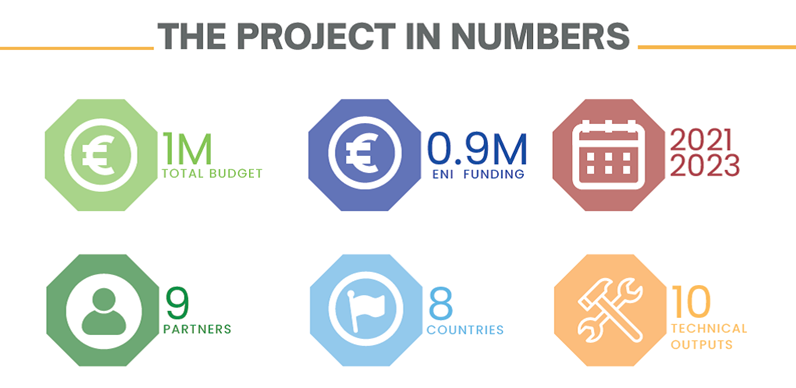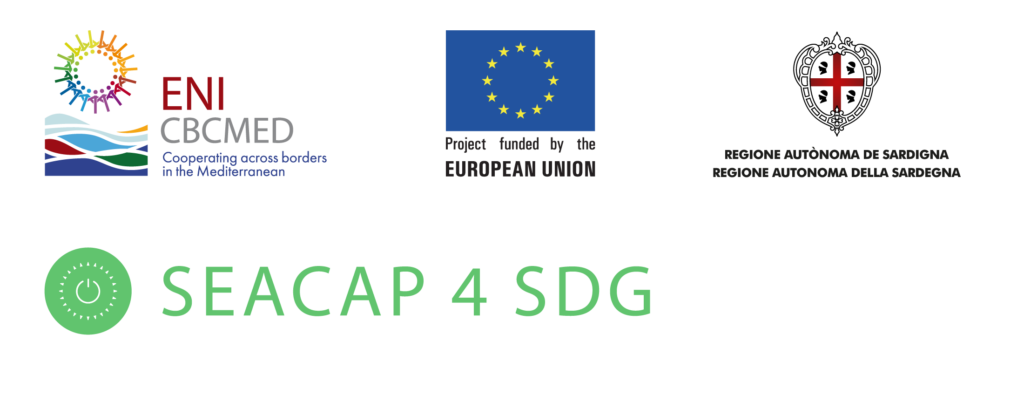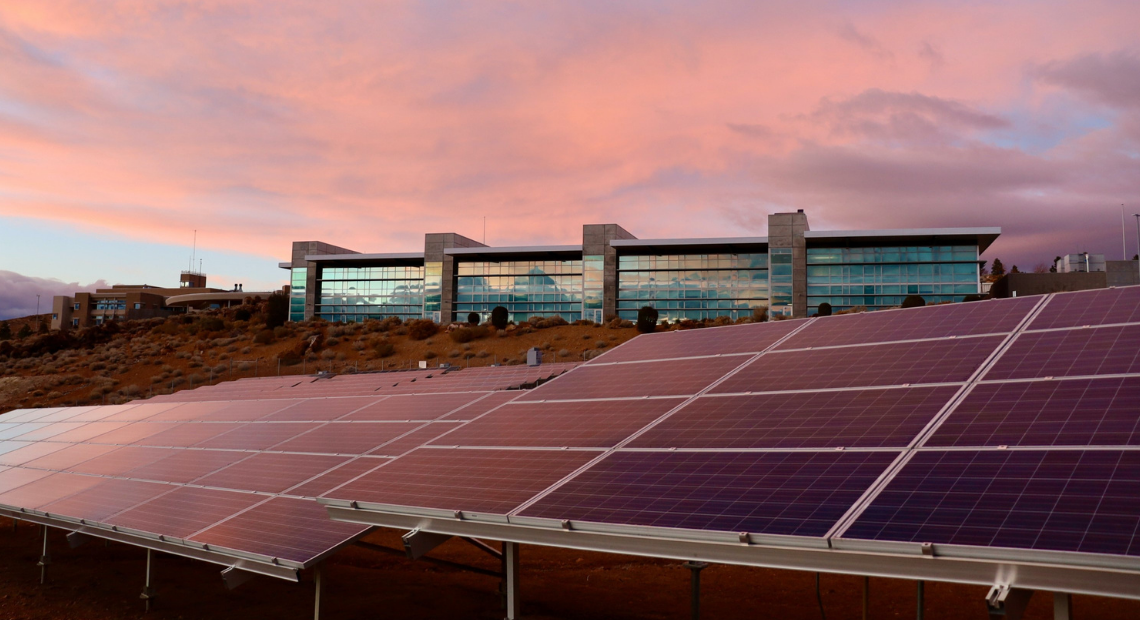Territories surrounding the Mediterranean Sea face similar specific issues with the adaptation and mitigation of climate change, specifically regarding energy efficiency and renewable energy measures in public buildings. It is thus proposed that these territories work together on a strategy to capitalize on reference projects’ results. To do so, SEACAP 4 SDG considered the Sustainable Energy Access and Climate Action Plans (SE(A)CAP) background, under a common vision, strategy, and evaluation tools, to achieve Med SE(A)CAP integration through uniform adapted assessment and financing methods, for sustainable development goals in a smart society.
SEACAP4SDG is a project funded under the ENI CBC Med Programme that stands for “Med SE(A)CAP integration through uniform adapted assessment and financing methods, mainly targeting buildings in education and health sectors, for sustainable development goals in a smart society”. SEACAP 4 SDG capitalizes on the outputs and outcomes of up to 14 research projects, identifying characteristics to be generalized, and by adapting gained knowledge to maximize efficiency and effectiveness of energy refurbishment strategies adapted to local Mediterranean specificities, notably energy poverty. These outputs and outcomes, collected in an available for free toolkit have been implemented in selected 9 cities around the Mediterranean, using an approach developed under of the European City Facility initiative.
Over the past months, the SEACAP4SDG project has been a beacon of commitment and collaboration, driving sustainable development across our coastal communities. It has been a journey filled with remarkable achievements, challenges met with resilience, and the unwavering dedication of every member of the project community.

Under a shared vision, strategy, and evaluation framework, the SEACAP 4 SDG project partners have achieved remarkable milestones. Through a series of meticulously designed actions and activities, these valuable insights were recollected in the final Booklet of the project “Adoption of Energy-mix efficiency plans for public institutions: Assessment and Recommendations”. The proposed action plans including energy efficiency and renewable energy measures in 7 buildings demonstrator would lead to 161,940 kWh saved and 57,735 kg CO2 emissions reduced.
The SE(A)CAP Living Labs (SLLs) have been developed based on past experiences, adding an innovative approach with a special focus on enhancing collaboration between academics, decision-makers, and stakeholders. In the framework of the project, different Local Living Lab sessions were organised among the partner countries, to support energy managers in planning and implementing innovative sustainable energy measures specifically targeted to public buildings.
You can also watch the project wrap-up video to have an insight look to the project’s outcomes and achievement:
The SEACAP 4 SDG held a project’s final conference on September 6th, 2023, at the AASTMT Arab Academy For Science, Technology, and Maritime Transport, with participants representing local and international institutions. A summary of the session can be found here.
Jordi Pascual, with the support of Anabella Sanchez, Mario Heredero, Dario Emilio Hernando, Santiago Escudero and Ivan Bellanco, from the Thermal Energy and Building Performance group at IREC, contributed with the definition of the so-called toolkit, introducing tools, methodologies and platforms ready to be used in open format, and the definition per implementation of the new mechanism to support municipalities in the definition and implementation of Smart SECAPs.
The consortium is formed by 9 European partners including Euromed Cities Network / Nice Côte d’Azur Metropolis (Lead, France), the Arab Academy for Science, Technology and Maritime Transport (AASTMT, Egypt), the University of Patras (Greece), the Naples Agency for Energy and Environment (ANEA, Italy), the Royal Scientific Society (National Energy Research Center (NERC, Jordan), the Lebanese Center for Energy Conservation (LCEC, Lebanon), the Institut de Recerca en Energia de Catalunya (IREC, Spain), the Institut Valencia de l’Edificació (IVE, Spain) and Mediterranean Renewable Energy Centre (MEDREC, Tunisia). The enlarged Partnership also includes 7 energy agencies from 6 countries (France, Italy, Lebanon, Morocco, Portugal, Spain), who were direct beneficiaries of the Project.
This project has received the financial assistance of the European Union under the ENI CBC Mediterranean Sea Basin Programme. The 2014-2020 ENI CBC Mediterranean Sea Basin Programme is a multilateral Cross-Border Cooperation (CBC) initiative funded by the European Neighbourhood Instrument (ENI). The Programme objective is to foster fair, equitable and sustainable economic, social and territorial development, which may advance cross-border integration and valorise participating countries’ territories and values.




